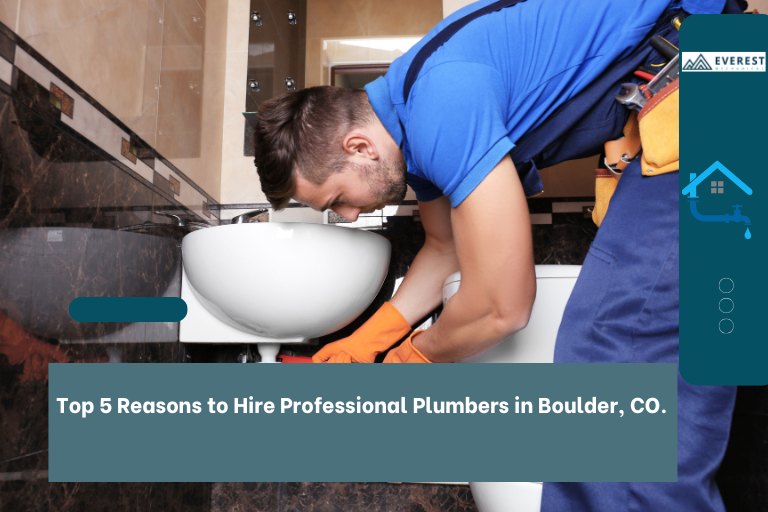- Servicing areas in and around: Estes Park, Longmont, Boulder, Arvada, Fort Collins, Denver, Loveland, and Lyons
- 8883880970
Essential Tips for Winterizing Your Home’s Plumbing in Colorado
7 Important HVAC Maintenance Tips for Homes in Colorado’s Winter
November 1, 2024
How To Choose The Right Water Heater For Your Home?
November 12, 2024After a harsh summer season in Colorado, winter is going to arrive soon offering relief from scorching heat and hot climate. However, with it, winter also brings immediate need to protect your home’s plumbing from even harsh winter climate. As winter is around the corner in Colorado, every homeowner must act fast, check out here important tips for winterizing your home’s plumbing in colorado and protect essential elements to save costly repairs in the future. Every professional plumber recommends winterization of the home’s plumbing in Colorado before the onset of cold weather.
In this post, we will explore some of the home winterization checklists and discuss various ways to protect valuable plumbing equipment and parts from winter, providing you with complete peace of mind.

Risks of not Winterizing Home’s plumbing
Winterizing a home’s plumbing is very much essential in Colorado and not doing so can lead to various problems. Here are some risks that you may face if you do not take proper actions to protect them in winter:
- Frozen pipes – during the freezing winters, the water inside the pipes also freezes and expands in volume. This can lead to bursting of pipes.
- Water damage – A burst pipe will lead to water damage and affect the home’s walls, floors, and ceilings.
- Mold growth – water damage also provides the perfect environment for molds to breed and grow and can lead to health risks
- Costly repair – damages can lead to costly repair and a huge inconvenience.
Essential Steps to Winterize your Home’s plumbing
Winterizing your home isn’t as complex as it sounds, yet you may sometimes need professional plumbers in Colorado’s help. You may begin winterizing by following the steps:
- Inspect Properly and Seal the Doors and Windows
To protect your home’s plumbing, it is important to ensure optimum home temperature. So, start by winterizing your home first. You can do so by inspecting the doors and windows for any gaps and sealing them properly with weather strips or caulk. These will help prevent cold air from entering inside home and prevent escaping warm air out.
Outdoor Winterization
- Insulate Exposed Pipes
Now start by winterizing your plumbing fixtures. The first step is insulating exposed pipes i.e. pipes located in unheated areas such as basements and attics. Wrap the pipes with foam pipe insulation sleeves or heat tape to prevent freezing. Check the pipes that are close to exterior walls or those leading to faucets located outside.
- Protect the Pipes and Fixtures Located Outside.
You must disconnect the garden hoses from outdoor faucets and turn off the water supply to them. Also, consider installing insulated faucet covers that are a great way to shield them from freezing temperatures.
- Draining Out The Faucets
Draining out the faucets ensures there is no residual water that can cause damage to faucets or fixtures after freezing. So, turn off the main water shutoff valve and open all the faucets to drain all the remaining water. If your faucets have drain valves then close them. This is necessary to prevent water from entering the pipes.
- Winterizing Sprinkler System
Turn off the water supply to your home’s sprinkler system and drain it completely. You may also need to use an air compressor to blow out any remaining water. Removing and storing sprinkler heads can also help protect them from freezing. You can also contact professional plumbers in Denver, or the part of Colorado you live in to help you drain water.
Indoor Winterization
- Insulate Interior Pipes
Check the cabinets under sinks for exposed pipes and wrap them with insulation. Seal the gaps you see around pipes with caulk and weatherstrippings.
- Maintain Warm Indoor Temperature
Ensure your home’s HVAC systems like the furnace are working fine and maintain your home’s indoor temperature. Keep your thermostat’s minimum temperature to at least 55 degrees Fahrenheit, even if you are not home. Opening cabinet doors will also help with warm air circulation around pipes.
Following these steps will keep your home’s plumbing protected from winter and its harsh effects on them.
Apart from these, you should know where your water shutoff valve is and know how to operate it. Also, if you are leaving your home for a longer time, draining pipes completely or taking professional plumbers’ help to winterize your home is recommended.
Summing up!
Winterization shouldn’t be a difficult task for you, however, if you ever think you are missing something, you must call professional plumbers like Everest Mechanical to ensure they properly winterize your home and provide you complete peace of mind.


